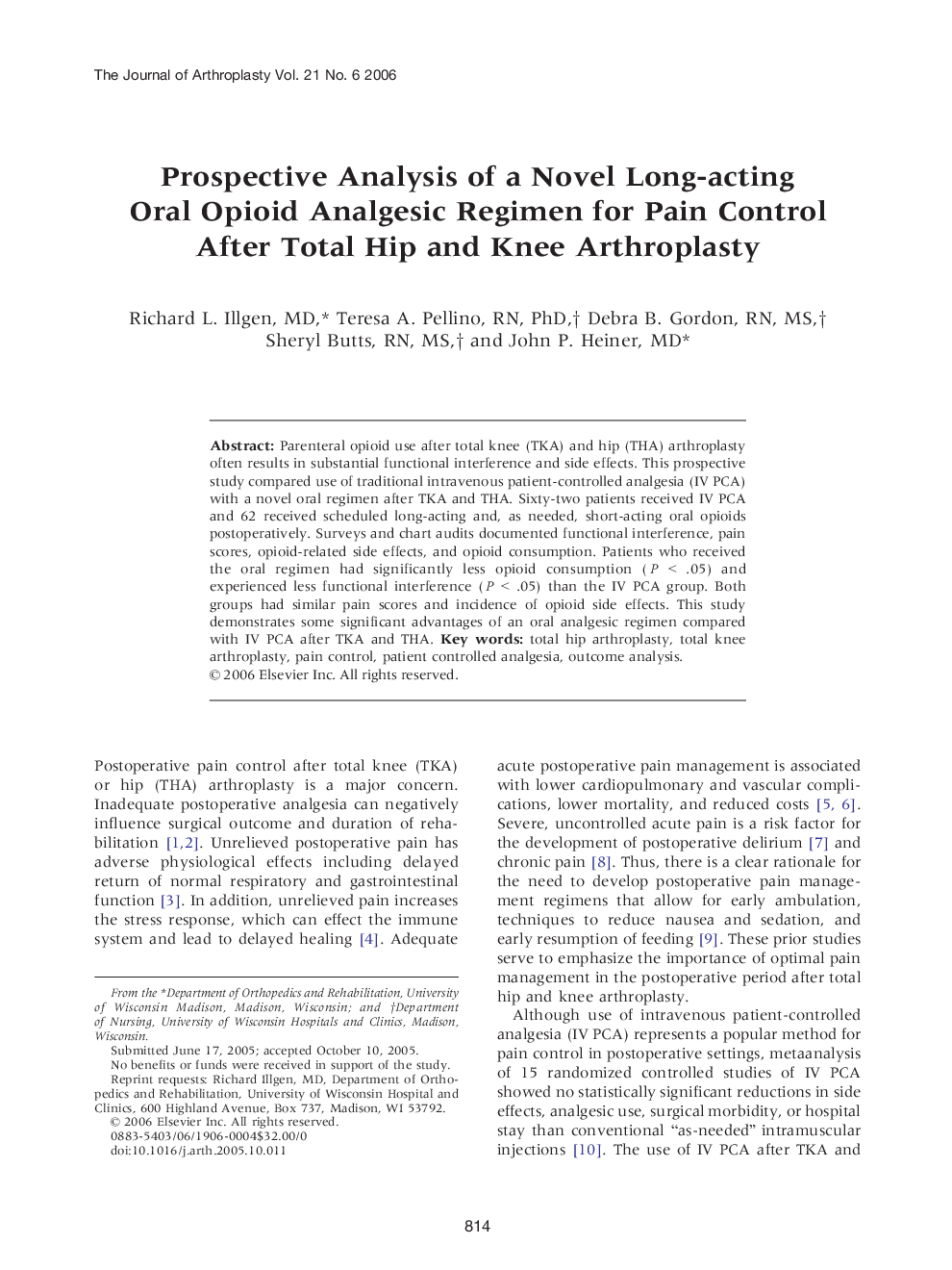| Article ID | Journal | Published Year | Pages | File Type |
|---|---|---|---|---|
| 4064079 | The Journal of Arthroplasty | 2006 | 7 Pages |
Parenteral opioid use after total knee (TKA) and hip (THA) arthroplasty often results in substantial functional interference and side effects. This prospective study compared use of traditional intravenous patient-controlled analgesia (IV PCA) with a novel oral regimen after TKA and THA. Sixty-two patients received IV PCA and 62 received scheduled long-acting and, as needed, short-acting oral opioids postoperatively. Surveys and chart audits documented functional interference, pain scores, opioid-related side effects, and opioid consumption. Patients who received the oral regimen had significantly less opioid consumption (P < .05) and experienced less functional interference (P < .05) than the IV PCA group. Both groups had similar pain scores and incidence of opioid side effects. This study demonstrates some significant advantages of an oral analgesic regimen compared with IV PCA after TKA and THA.
